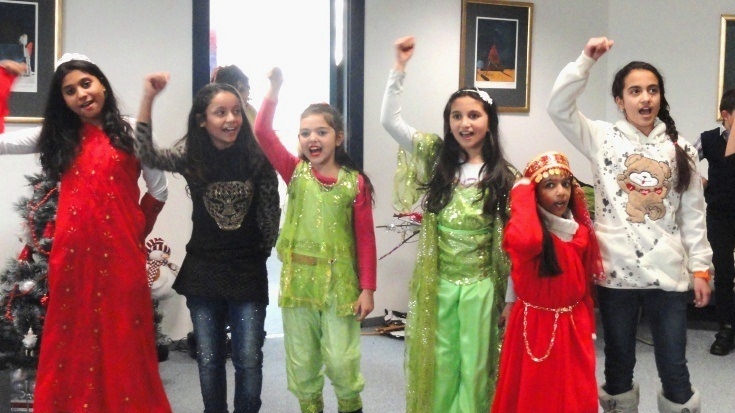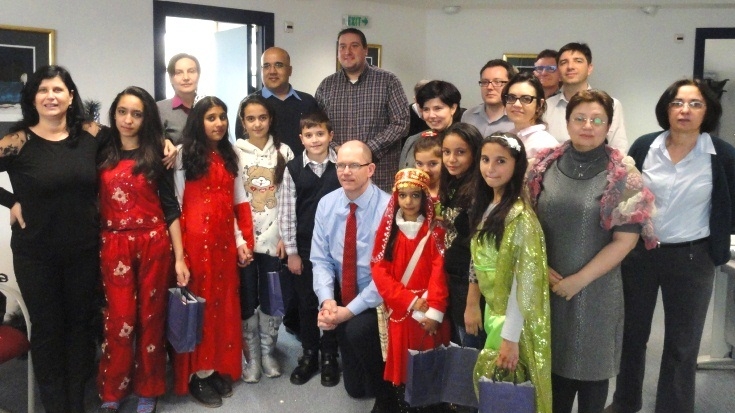Bango Vasil - or Roma New Year - is celebrated every year in Bulgaria on January 14. This event is one of the most prominent traditions in Roma culture and is linked to Saint Vasil, believed to be the savior of all Roma. This year, to help ring in Bango Vasil, nine Roma children from the primary school in the small village of Dzulunitsa in visited the World Bank Country Office in Sofia to offer their best wishes for the New Year - a ritual known as “survakane” in Bulgarian.
This visit was initiated by the Center for Interethnic Dialogue and Tolerance “AMALIPE” which annually promotes Roma traditions by sending kids around to different institutions and embassies. This year marks the first year that the World Bank in Bulgaria has been included on the list of institutions and people invited to join in this celebration. These festivities also included Deputy President Margarita Petkova, Deputy Prime Ministers Tomislav Donchev and Ivaylo Kalfin, as well as the ministers of education, regional development and culture, and members of the Bulgarian Parliament. The ambassadors of Belgium, Germany, Norway, Poland, the Netherlands, the United Kingdom, and India also hosted these children and celebrated the Roma New Year with them.


